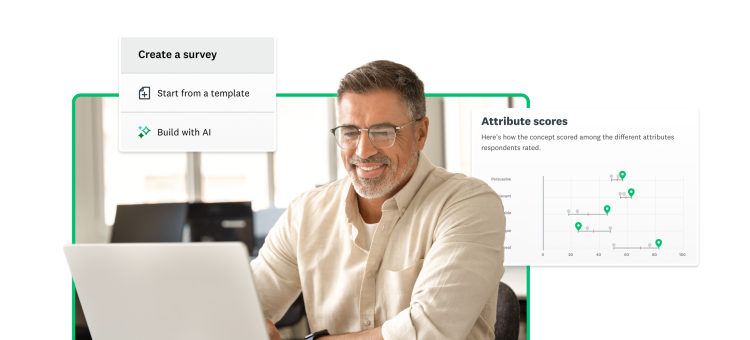Key findings:
- Americans are hearing and talking about AI; 61% hear about AI in the media at least weekly, and 37% hear about AI at least weekly from friends, family, or coworkers
- Half (52%) of American adults believe that AI will have a major impact on their lives in the next five years
- The vast majority of Americans (90%) prefer humans to AI for customer service, claiming humans better understand their needs, provide more thorough explanations and more options, and are less likely to frustrate
- More than two-thirds would be uncomfortable using AI to get medical advice (69%) or decide how to invest their savings (68%), but more than half would be comfortable using AI to help with ordering food or beverages (65%), returning an item (59%), or completing work or school tasks (52%)
- Consumers are split on whether they think they can tell when they are interacting with an AI chatbot (54% are confident) or identify AI-generated content (47% are confident)
The AI hype is real
As generative AI tools explode onto the market, half (52%) of American adults believe that AI will have a major impact on their lives in the next five years, according to a new poll from SurveyMonkey conducted April 17-19. The AI hype is real – people are hearing about AI in the media (61% hear about AI in the media at least weekly) and from friends, family, or coworkers (37%).
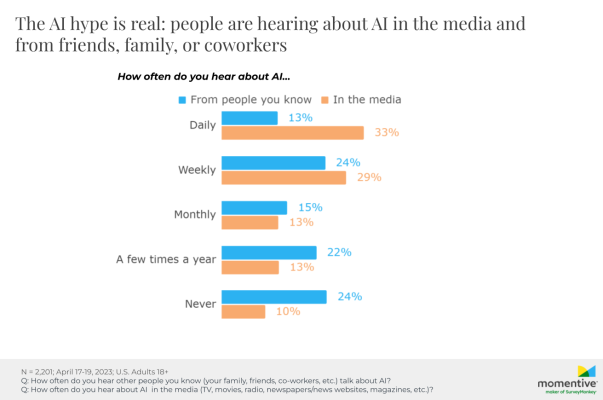
More than half of US adults have negative feelings about AI in customer experience
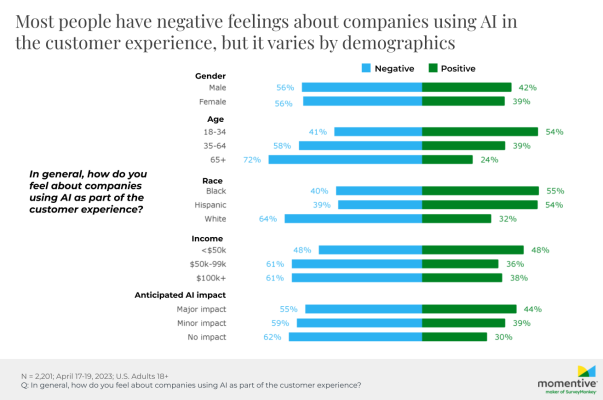
But Americans may not be ready for AI to enter into their customer experiences just yet; more than half (56%) have negative feelings about companies using AI as part of the customer experience. Older adults 65+ are more likely to have these negative feelings (72%) compared with those ages 18-34 (41%) and 35-64 (58%). Sentiment also varies by race and by income. White adults are more likely to feel negatively (64%) than Black (40%) or Hispanic (39%) adults, and those with higher incomes between $50-99k and $100k+ are more likely to have negative feelings (61%) than those with lower incomes (48%).
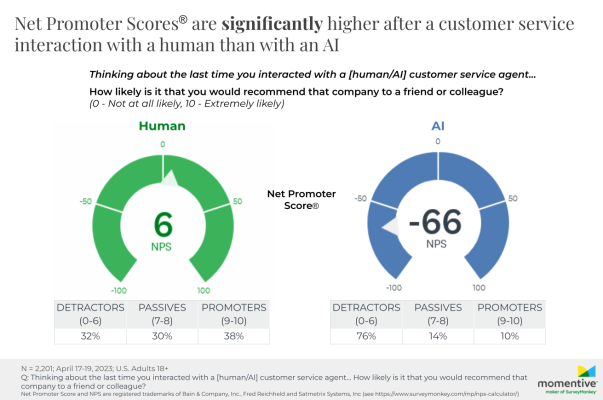
Customer service programs typically rely on a measure called the Net Promoter Score (NPS) to understand how well they are meeting their customers’ needs. The NPS is a simple question: how likely would you be to recommend this service or product to a friend, with answer options ranging from 0 (Not at all likely) to 10 (Extremely likely). The NPS score is then calculated by subtracting the percentage who gave a score from 0 to 6 (“detractors”) from the percentage who gave a score of 9 or 10 (“promoters”). When aggregated, NPS scores can range from -100 to +100.
With this in mind, we asked consumers to provide an NPS rating for their most recent interactions with a human and with AI, and our results show that Net Promoter Scores are significantly higher after a customer service interaction with a human (+6) than with an AI (-66).
Among those who had a customer experience with an AI chatbot, just 10% fell into the category of “promoters” who had a positive experience, and 76% ended up being detractors. Among those who had a customer experience with a human, 38% ended up as promoters and just 32% as detractors.
Nine in ten (90%) prefer human customer service agents to AI, reporting that humans better understand their needs (61%), provide more thorough explanations (53%), are less likely to frustrate them (52%), and give them more options to address their issues (50%). Among the 8% who prefer AIs, they cite better availability (41%), speed (37%), and more accurate information (30%) as the reasons behind their preferences.
Related reading: 25 statistics about using AI throughout the customer experience.
Gen Z shows more interest in AI customer experience use cases
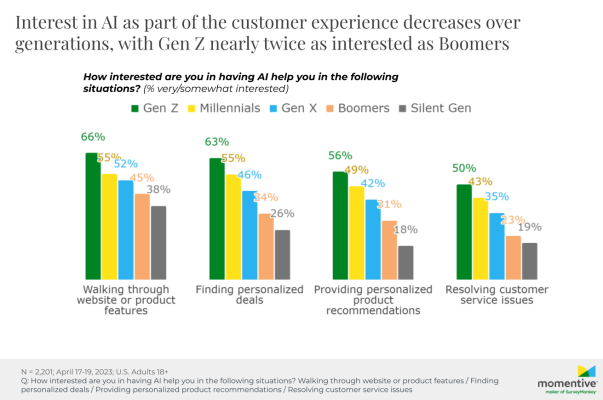
Despite the negative sentiment, there are still some AI use cases that interest consumers. About half are interested in having AI help walk them through website or product features (52%) or find personalized deals (47%). Fewer are interested in having AI provide personalized product recommendations (42%) or resolve customer service issues (35%). And across all four use cases, there is a stark divide in interest levels between Gen Z and older generations; for example, two-thirds (66%) of Gen Z are interested in website or product walk-throughs, compared with 55% of Millennials, 52% of Gen X, 45% of Boomers, and 38% of the Silent Generation.
Most are uncomfortable using AI for medical or financial advice
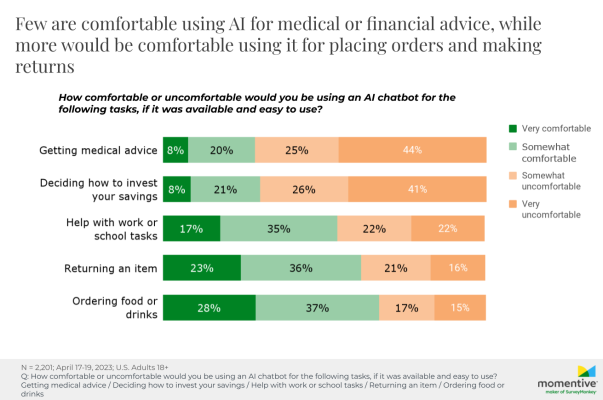
Some use cases make consumers uncomfortable; more than two-thirds would be uncomfortable using AI to get medical advice (69%) or decide how to invest their savings (68%). In contrast, more than half would be comfortable using AI to help with ordering food or beverages (65%), returning an item (59%), or completing work or school tasks (52%).
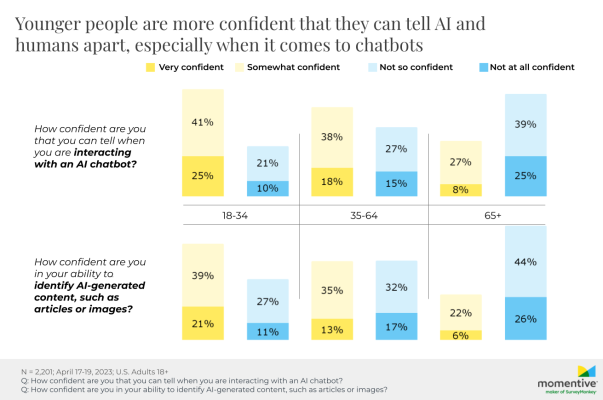
Consumers are split on whether they think they can tell when they are interacting with an AI chatbot (54% are confident) or identify AI-generated content (47% are confident). Younger consumers are much more confident. Most younger adults ages 18-34 think they can identify AI chatbots (66%) or AI-generated content (59%), compared with those ages 35-64 (55% and 49%) and ages 65+ (34% and 28%).
Read more about our polling methodology here.
Click through all the results in the interactive toplines below:



